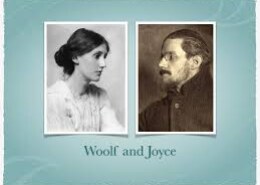Describe the beginnings and development of devotional Bhakti in South India and talk about the ways in which this popular movement found expression in the region’s vernacular literature.
Literature and literary trends have always been influenced by the societal conditions of the time. A literary text is not just a "self-contained system" as formalists would argue. Rather it holds a mirror to the society, culture, politics and ideologies of the time that it was written as, as contempRead more
Literature and literary trends have always been influenced by the societal conditions of the time. A literary text is not just a “self-contained system” as formalists would argue. Rather it holds a mirror to the society, culture, politics and ideologies of the time that it was written as, as contemporary theorist, Terry Eagleton would put forth in his essay, “Introduction: What is Literature?”. Similarly, the treatment of women in classic literature, is obviously a commentary on how women were treated during that time.
To instantiate, one can think of the character of Clarissa, from Alexander Pope’s classic mock-epic The Rape of the Lock. She talks about female virtue and moral didacticism in her speech. Given that the book was written in the neo-classical age, where a typically patriarchal society is at play, Clarissa seems to uphold all the values of the society. One can argue that perhaps she is the embodiment of everything that neo-classical society wanted women to be: demure, domestic and bound by their marietal status.
Other examples of such characters can be, Jane Bennet, from Jane Austen’s Pride and Prejudice, who truly holds the moral virtues of the Regency era, where a women’s dignity was measured by their ability to secure a husband; or Nora Helmer from Henrik Ibsen’s modern drama “Dolls House”, who is typically shows an enlightened women rejecting her husband for her ill-treatment.
See less

The Bhakti movement as it originated in South India in the eighth century refers to the religious movement during the medieval period, which propagated the concept of Bhakti i.e., intense love and devotion to God while condemning rituals, ceremonies and superstitions. It sought to bring religious reRead more
The Bhakti movement as it originated in South India in the eighth century refers to the religious movement during the medieval period, which propagated the concept of Bhakti i.e., intense love and devotion to God while condemning rituals, ceremonies and superstitions. It sought to bring religious reforms to all strata of society by adopting the method of devotion to achieve salvation. It achieved a great deal of popularity through the poems of the Alvars and Nayanars, the Vaishnavite and Shaivite poets.
Its origin and spread can be traced as following
Thus, the Bhakti movement spread in South India through various saints who denounced rigidities of Hinduism. The vernacular language of the south depicts the Bhakti movement in following form:
See less